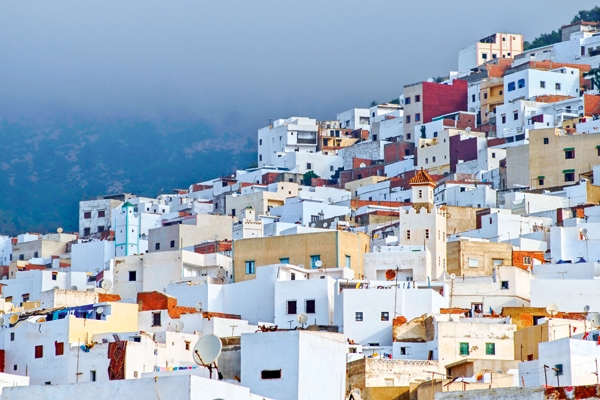Why hasn’t Morocco had an Arab Spring? On the one hand, history; on the other, the vision of the present king, Mohammed VI.
Throughout the colonial era, when France and Spain each had a slice of the country, Morocco retained its identity, its cities, its culture and its monarchy — which stretches back for centuries, unlike the artificial monarchies created in the Middle East by the Europeans. It was never officially a colony of either France or Spain, but a protectorate.
France did exile Mohammed V, the present king’s grandfather; but in 1956 the people successfully demanded his restoration, and full independence followed in 1957. So Morocco is the only country whose people successfully campaigned for a ruler who pre-dated colonialism to return.
Mohammed VI succeeded to the throne in 1999 and swiftly began a series of reforms that have allowed him to leapfrog the Arab Spring. The present government is headed by an Islamist party, in coalition with three of the parties of the previous government, and the king has devolved power to that administration in all but two crucial areas. As a direct descendant of the Prophet he retains his position as head of the religion and, like the US president, he remains commander-in-chief of the armed forces.
While the foresight of the king has brought much stability to the country, all is not a bed of roses. Corruption, while considerably lessened in recent years, continues to be a concern. The king has too many cars, and some of his relations behave in an unattractive manner. But the mass of the people support the direction in which the country is moving and appreciate the king’s commitment to that. While his father, a potentate, was feared, Mohammed VI is loved.
Up in Tangier, where my grandfather settled in the 1920s, the enormous and uncontrolled development, which has left many back pockets bulging, is very worrying. King Hassan hated Tangier and for the 38 years of his reign the city mouldered; no money was spent there, so the place had a dejected look. But now King Mohammed’s ambition is that Tangier should rival Algeciras as an import/export hub. There is a new port 20 miles outside the town, motorways, thousands of blocks of flats, and hundreds of tourist complexes of the worst kind. There are worries about how to provide enough water and services for all the new people. The beautiful wild iris — Iris tingitana — which used to turn the hills blue in spring is scarcely to be seen.
My daughter Jacquetta got to know Ahmed Errachidi through her work with the charity Reprieve. He had worked as a chef in London for 12 years before going to Pakistan on a misguided venture to buy silver, and was picked up and chucked into Guantanamo. No questions asked, none of his explanations investigated. Now he has written a book called The General about his five-year incarceration. Jacquetta found him an agent and his book will be out in March.
There are wonderful new traffic lights in Tangier. They count you down in seconds, and if you are a pedestrian the little man in green runs faster and faster as the time for crossing runs out. There is also a game played at roundabouts, called ‘Can you guess which exit I am going to take?’ The winner is the driver who decides last, crosses most lanes of traffic, and manages not to touch another car. Anyone using indicators is disqualified.
On show at the Cinémathèque de Tanger is an exceptional documentary called Hercule contre Hermès made by Mohammed Ulad. It features a Moroccan peasant family who refused to sell their plot of land to Patrick Guerrand-Hermès, who bought the land next door 12 years ago. The film shows all the things they would be able to afford if they accepted his offer, but they have stood firm despite two members of the family being sent to prison on a charge of denying access to Hermès. The family was in the audience and at the end went on stage to a standing ovation.
The Hermès family is also constructing a polo pitch plus stabling and a hotel on a completely virgin beach not far from their house. There are suspicions that they are trying to use a local village’s scanty water supply to water the polo pitch’s grass, as the nearby river is too salty.
To the expatriate community, particularly the British, it was a surprise in 2002 when a Dubai-based tycoon decided to build a cricket stadium adjoining the golf club of Tangier. As far as anyone can remember, no cricket has ever been played in Morocco. The idea was to have a neutral location for international cricket that would be attractive to TV companies: good climate, easy time zone. But there was one element missing for the TV — spectators. For the first match, a few mystified elderly Brits were seduced by free tickets to go and watch, along with a smattering of Moroccans who thought they were going to see a baseball match.
The last time the cricket pitch (which is still watered and mowed) was used was in 2004. It seems obvious to me that Hermès should move his polo to the cricket pitch. One can only hope that the new Islamic government in Morocco will change the habit of giving permits for all these rich men’s follies.






Comments